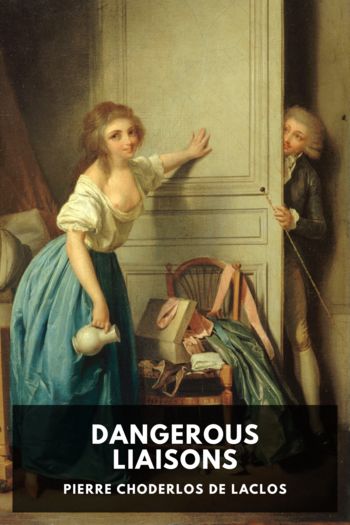The Disappearance of Stephanie Mailer: A gripping new thriller with a killer twist, Joël Dicker [general ebook reader .txt] 📗

- Author: Joël Dicker
Book online «The Disappearance of Stephanie Mailer: A gripping new thriller with a killer twist, Joël Dicker [general ebook reader .txt] 📗». Author Joël Dicker
It was a mild evening. Terrence parked in the marina parking lot and they strolled to the restaurant. The place was wonderful, with an outdoor seating area, entirely candlelit and surrounded by banks of flowers. The front of the restaurant was a large picture window, on which a series of lines and dots had been etched, which at first glance looked like a Native American motif, until it became clear that it was an owl.
Seeing that design, Lena Bellamy began shaking. “That’s it!” she said to her husband.
“What?”
“That’s the logo I saw on the back of the van.”
Bellamy called us from a phone booth. Jesse and I drove straight to Orphea and found the Bellamys lying low in their car at the marina. Lena was in tears. In the meantime, the famous black van had drawn up outside Café Athena. The logo on the rear window was indeed identical to the one on the front of the restaurant. Its driver was a man of imposing build whom the Bellamys had seen entering the establishment. We were able to identify him thanks to the van’s license plates. It was Ted Tennenbaum, the owner of Café Athena.
We decided not to rush in and arrest Tennenbaum. We would start by making inquiries. It did not take us long to realize that he corresponded to the profile we had of the killer. He had bought a handgun a year earlier—although it was not a Beretta—and he practiced regularly in a local shooting range, whose owner told us he was a pretty good shot.
Tennenbaum came from a well-to-do Manhattan family, the kind of impulsive rich kid who liked to use his fists. It was because of his propensity for getting into fights that he had been dismissed from Stanford University. He had even done a few months’ jail time—although that had not prevented him from later buying a weapon. He had been living in Orphea for a few years, and had, apparently, kept out of trouble. He had worked at the Lake Palace before launching out on his own with Café Athena. And it was his restaurant that had landed him in a dispute with the mayor.
Tennenbaum had bought a building that was ideally situated, bang on Main Street. The high price asked by the owner had put off other purchasers, but Tennenbaum was confident his restaurant would be a success. There was just one big problem: the zoning regulations did not allow for a restaurant in that location. Tennenbaum was somehow persuaded that the town council would grant him favorable treatment, but Mayor Gordon did not see things that way. He was fiercely opposed to the plans for Café Athena. Tennenbaum planned to make it a happening spot, the kind of place you might find in Manhattan, and Gordon claimed to see no benefit for Orphea. He refused any exemption from the zoning regulations. A number of municipal employees told us there had been heated arguments between the two men.
The next thing we discovered was that one night in February the building had been devastated by fire. That turned out to be a lucky break for Tennenbaum. The need for a total rebuild meant that the zoning regulation was changed. It was Chief Hayward who told us about this episode.
“So it was thanks to the fire that Tennenbaum was able to open his restaurant,” I said. “And the fire was caused deliberately, I imagine.”
“Obviously. But we found nothing that could prove that Tennenbaum was responsible. In any case, as luck would have it, the fire took place just in time for Tennenbaum to complete the work and open the restaurant before the start of the festival. Since then, it’s been pretty much full all the time. It wouldn’t have worked out if there had been the slightest delay.”
That was the point that would prove crucial. Several witnesses asserted that Gordon had implicitly threatened Tennenbaum with a delay to the work. We even heard from Deputy Gulliver about an incident when he had had to step in to stop the two men coming to blows in the street.
“Why did nobody tell us about this disagreement with Tennenbaum?” I asked.
“Because it happened back in March,” Gulliver said. “I’d forgotten about it. You know, when it comes to politics, people are always getting worked up. I have heaps of stories like that. You should go to a council meeting. The guys are forever going at each other hammer and tongs. That doesn’t mean they end up shooting each other.”
But for Jesse and me, that was enough. Tennenbaum had a motive to kill the mayor, he was a trained marksman, and his van had been formally identified as being parked outside the Gordons’ house a short time before the murders. At dawn on August 12, 1994, we arrested Tennenbaum at his home for the murders of Joseph, Leslie, and Arthur Gordon, and Meghan Padalin.
We arrived triumphantly at troop headquarters and escorted Tennenbaum to the cells while our colleagues and Major McKenna looked on admiringly.
Our blaze of glory lasted just a few hours. Long enough for Tennenbaum to call Robin Starr, a top-flight New York lawyer, who made the journey from Manhattan as soon as Tennenbaum’s sister paid him a $100,000 retainer.
In the interrogation room, Starr simply tore us to pieces, while the major and the rest of our colleagues could only watch behind a two-way mirror, doubled up with laughter.
“I’ve seen some incompetent police officers in my time,” Starr said, “but





Comments (0)